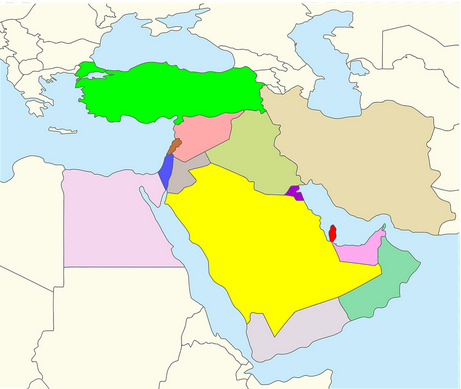Over the past few weeks, several nations in the Middle East have shown an increasing appetite and signed energy deals with African nations worth at least $6 billion altogether. The move also highlights a trend of increasing investment in Africa from within the Middle East.
Middle East Players Fuel Positive Investment Drive for African Energy
Abu Dhabi National Oil Company (Adnoc) one of the main names in the Middle East was one of the few finalists to buy the downstream of Shell Plc in South Africa. The financial value of these assets is estimated to be around $1 billion. Last month, sources familiar with the matter told Reuters. Moreover, according to Royal Dutch Shell PLC, recent reports show that “more than a few UAE —Major Mideast producers (Adnoc) and other UAE corporations signed interest in a broad range of the African energy sector in a short space of time. This united interest from the Middle East also marks a crucial development in the future of Africa-focused investment.”
Middle East Investors Heavy into South African Downstream Assets
That a major entity like the Middle Eastern Abu Dhabi National Oil Company could be involved with the purchase of Shell’s downstream business in South Africa highlights the underlying attraction of certain energy plays on the African continent. The price tag on these assets, which could be as much as $1 billion, illustrates just how large an amount of capital mass in the Middle East is contemplating deploying. The fact that Adnoc was shortlisted is an indication that the acquisition process has progressed and that a large deal becoming a reality is more likely than not. Such development has the potential to be beneficial for energy infrastructure and the economy of South Africa as a whole.
A Borderless Blending of Middle Eastern Investment Initially into African Energy
Apart from the speculative purchase object in South Africa, also the reported interests expressed by Adnoc and other United Arab Emirates-based corporations, an economic heavyweight within the Middle East, across the broader African energy landscape, signal a “holistic and -strategic investment mentality.”
This articulated ambition, “covering multiple supply chain segments of the energy sector, may include activities from the upstream segment of exploration, through the midstream segment of production and refining operations, and ultimately down to the downstream segment of distribution networks.” This unprecedented involvement and engagement from the Middle East are a clear signal of the confidence that is placed in the long-term potential for growth, and the viability of large-scale energy projects that Africa possesses in abundance. Also, the geographical diversity that is built into these possible investments may additionally help drive financial prosperity in many African countries.
Increased Opportunities for Bilateral Economic Cooperation
The growing interest by Middle East states in African energy assets can deepen economic ties between these two large and geopolitically important regions. These strategic long-term investments from the global north can provide much-needed finance and technical expertise into Africa’s emerging energy sector, potentially accelerating critical infrastructure development, creating much-needed jobs, and increasing revenue for African economies. For the investing nations of the Middle East, on the other hand, these projects present unique opportunities for strategic portfolio diversification and exposure to fast-growing markets. In turn, the benefits generated through these collaborations can contribute to strengthening sustainable economic connections.
Also Read: Abu Dhabi to Host Middle East Film and Comic Con Until 2027
Other Key Insights
The overall drivers behind the increased appetite from the Middle East to invest in the African energy space will be complex and overlapping. This reflects a convergence of a few trends: changing patterns in global energy needs (another story for another day); Africa’s vast and critical resource base (one that many nations covet); and the opportunity for solid returns on invested capital. In addition, wider geopolitical factors and energy security ambitions of Middle Eastern countries may also be the underlying force behind these large investment decisions. It is expected that the clarity needed to determine both the specific nature and the scale of the energy deals to come on the African continent will unfold over the next few months.
Follow 10X Times for more business news.






